10 of the Best Films of Rock Hudson, the Closeted Mid-Century Hollywood Dreamboat
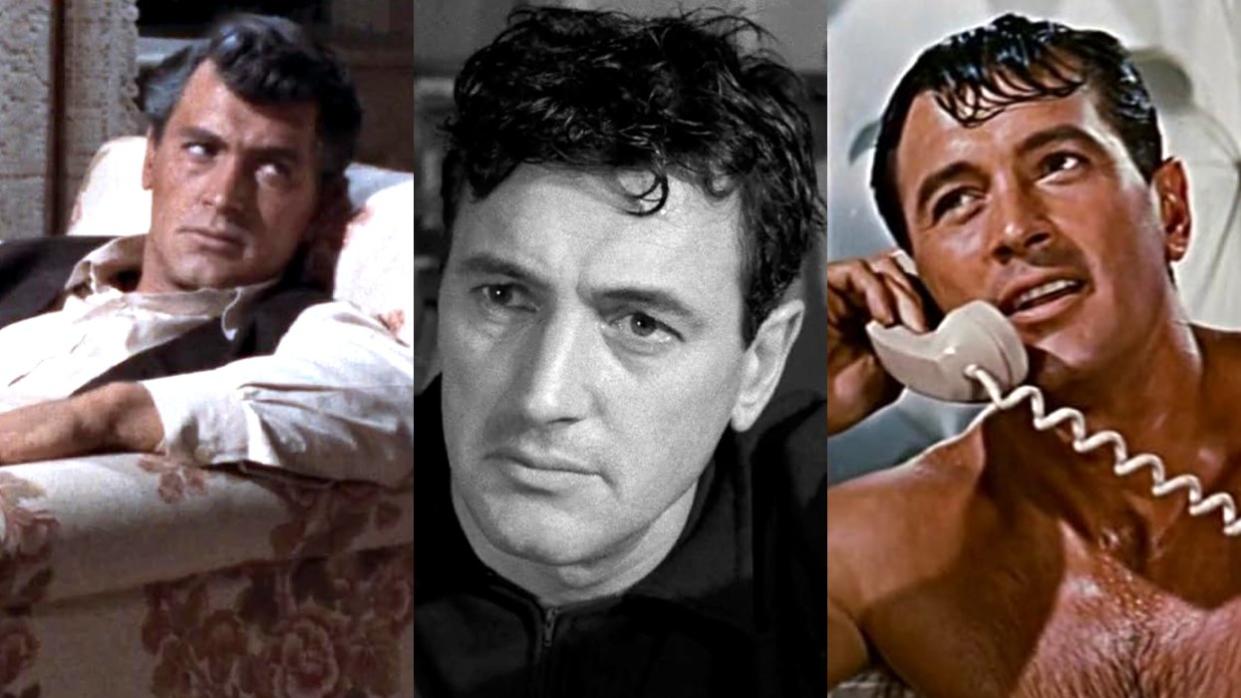
The Films That Made Rock Hudson One of the Biggest Mid-Century Stars
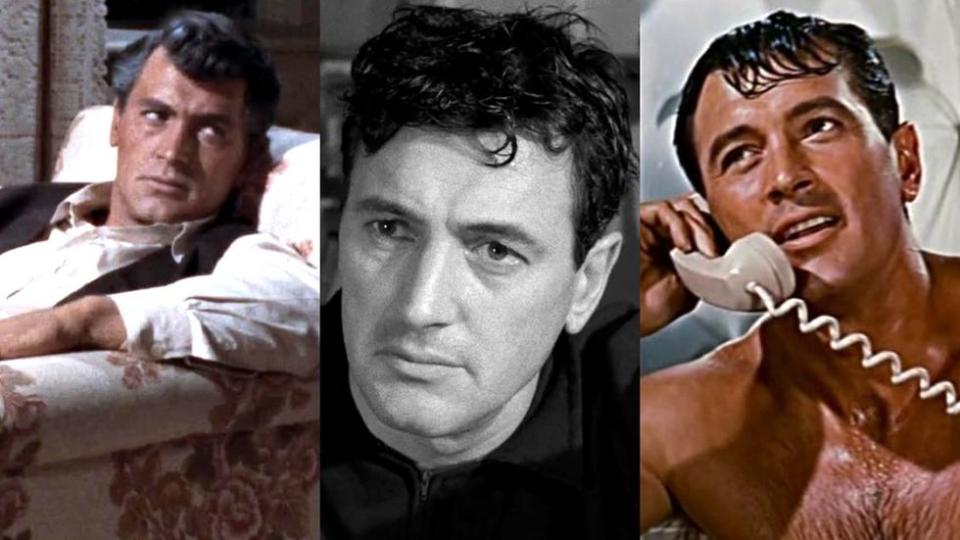
Warner Bros. Pictures; Paramount Pictures; Universal Pictures
Rock Hudson was one of the biggest movie stars of the 1950s and early 1960s. He was tall, dark, and handsome, a heartthrob to audiences, and a reasonably good but not great actor. He was also secretly gay — a fact that came out in 1985, when he announced he had been diagnosed with AIDS.
He died in October of that year. He’s best remembered today for the sex comedies he made with Doris Day and the epic Giant, but he also appeared in Westerns, war movies, melodramas (several for the esteemed director Douglas Sirk), and more. After his film career waned in the late ’60s — he was too bland for the more hip audiences — he was active on TV, with series including McMillan & Wife and Dynasty as well as miniseries. Herewith, 10 Hudson movies that are well worth viewing.
Magnificent Obsession (1954)
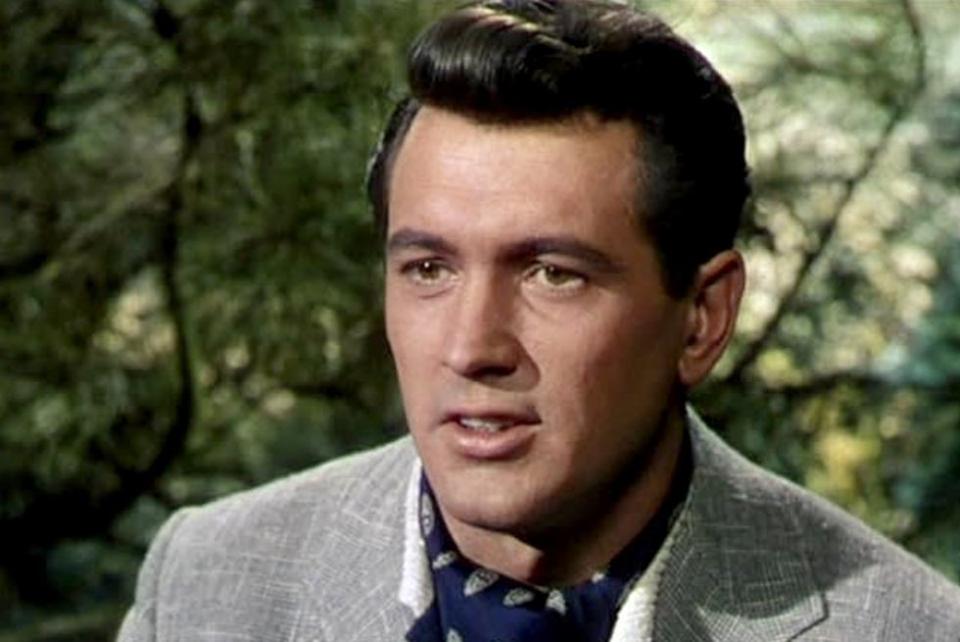
Universal Pictures
Hudson had appeared in several so-so movies, including Westerns and other action films (he was cast as a Native American in Taza, Son of Cochise), when the Sirk-directed Magnificent Obsession made him a full-fledged star. He plays wealthy playboy Bob Merrick, whose actions inadvertently cause the death of a beloved neighbor and the blindness of the man’s widow, Helen Phillips (Jane Wyman). Merrick is in love with her, so curing her blindness becomes his “magnificent obsession” — he becomes a doctor in order to do so. A preposterous plot, yes, but moviegoers ate it up, and the film can still draw a large audience, as evidenced by a screening at a recent TCM Classic Film Festival. It’s based on a novel by Lloyd C. Douglas; a 1935 version starred Robert Taylor and Irene Dunne.
All That Heaven Allows (1955)
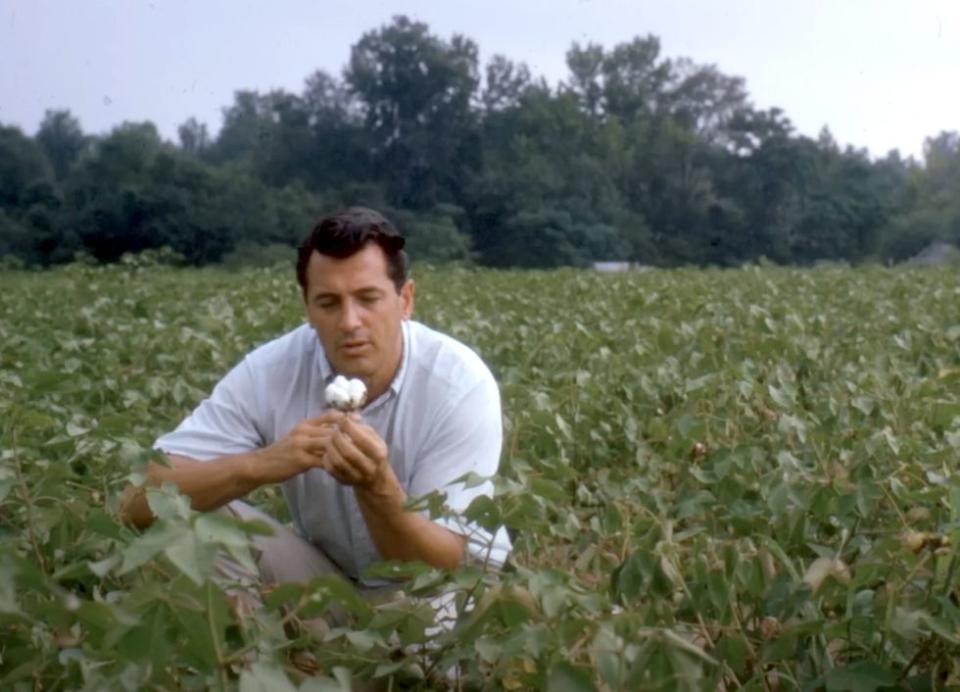
HBO
All That Heaven Allows is one of Hudson’s and Sirk’s best films. Jane Wyman again plays a widow, this time named Cary Scott, who leads a quiet, conventional life and is largely ignored by her two grown children. She is enlivened, however, by her growing affection for nature-loving nurseryman Ron Kirby (Hudson). Because he’s younger than she is and not interested in money, her children and her country-club friends disapprove of their relationship. Will she choose respectability or happiness? Like many Sirk films, it’s not just a melodrama but a social critique. Todd Haynes paid homage to the film in his wonderful Far From Heaven.
Written on the Wind (1956)
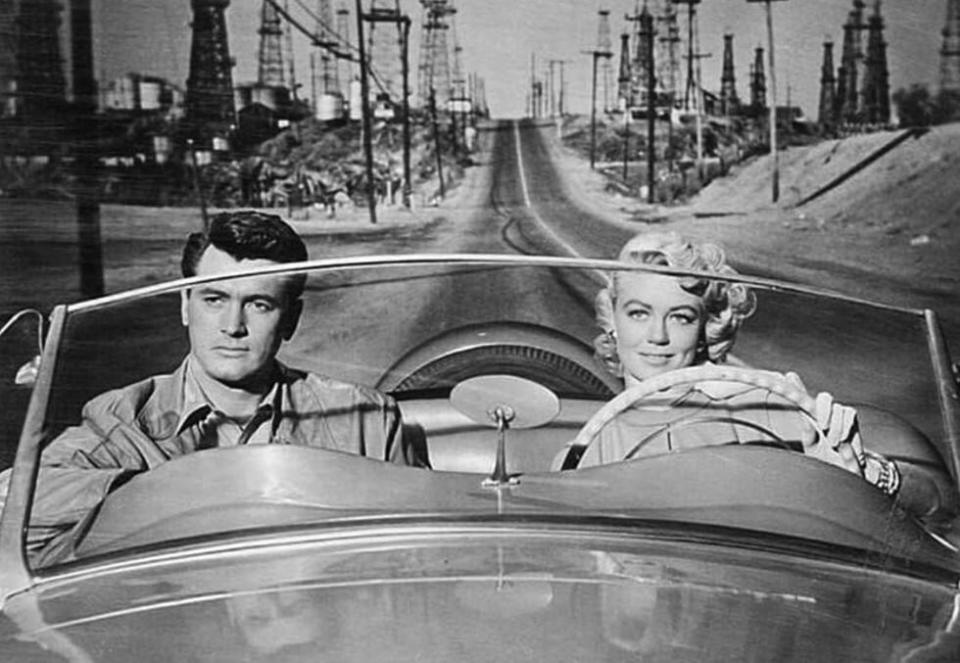
Universal Pictures
Written on the Wind is another Sirk melodrama. Robert Stack stars as Kyle Hadley, the alcoholic scion of an oil dynasty, who marries Lucy Moore (Lauren Bacall), a secretary at his family’s company. But his best friend, geologist Mitch Wayne (Hudson), also loves Lucy, while Kyle’s nymphomaniac sister, Marylee (Dorothy Malone), has a thing for Mitch, who looks on her only as a friend. Complicated! Malone won the Oscar for Best Supporting Actress, while Stack was nominated for Best Supporting Actor.
Giant (1956)

Warner Bros. Pictures
Giant, in which Hudson starred opposite his friend Elizabeth Taylor, remains one of his best-loved films. The sprawling saga of Texas ranchers and oilmen is based on a novel by Edna Ferber and directed by George Stevens. Hudson is rancher Bick Benedict, who marries Leslie (Taylor), a strong-minded Easterner, after a whirlwind romance; James Dean is cowboy Jett Rink, who loves Leslie too and eventually becomes rich after striking oil. The film deals with family drama, changes in society, and racism against the Mexican-American residents of Texas. There’s an estimable supporting cast, including Mercedes McCambridge (as Bick’s butch sister, Luz), Sal Mineo, Dennis Hopper, Carroll Baker, Jane Withers, Rod Taylor, and Earl Holliman. At three hours and 21 minutes, the movie may a be a bit of a slog for some viewers, but it has plenty of fans. Hudson was nominated for the Best Actor Oscar — his only Oscar nomination; Dean was nominated posthumously in the same category, but both lost to Yul Brynner of The King and I. The film received several other nominations, including Best Supporting Actress for McCambridge and Best Picture, while Stevens won the award for Best Director.
The Tarnished Angels (1957)
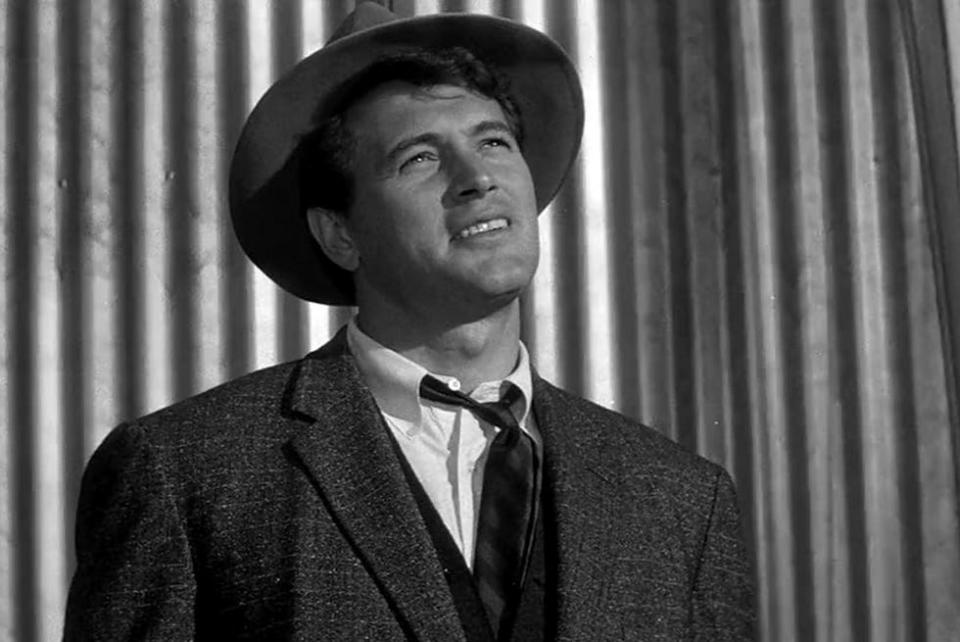
Universal-International
The Tarnished Angels was Hudson’s final film for Sirk. In this adaptation of William Faulkner’s novel Pylon, he’s journalist Burke Devlin, covering a story about stunt pilot Roger Shumann and Shumann’s mistreated wife, LaVerne, played by his Written on the Wind costars Robert Stack and Dorothy Malone. The film tones down the sexiness of Faulkner’s novel — certain things, like a ménage à trois, were still forbidden in ’50s movies — but it’s still pretty steamy. It was dismissed as a trashy melodrama upon its release, but it’s risen in critics’ and film buffs’ esteem over the years. Directors Rainer Werner Fassbinder and Peter Bogdanovich have praised it, and critic David Thomson called it “Sirk’s finest film, partly because he has resolved the novel’s tension between poetry and hokum.” Sirk described it as a study “of people who can’t make a success of their lives,” and he allowed that it might be his best film too.
Pillow Talk (1959)
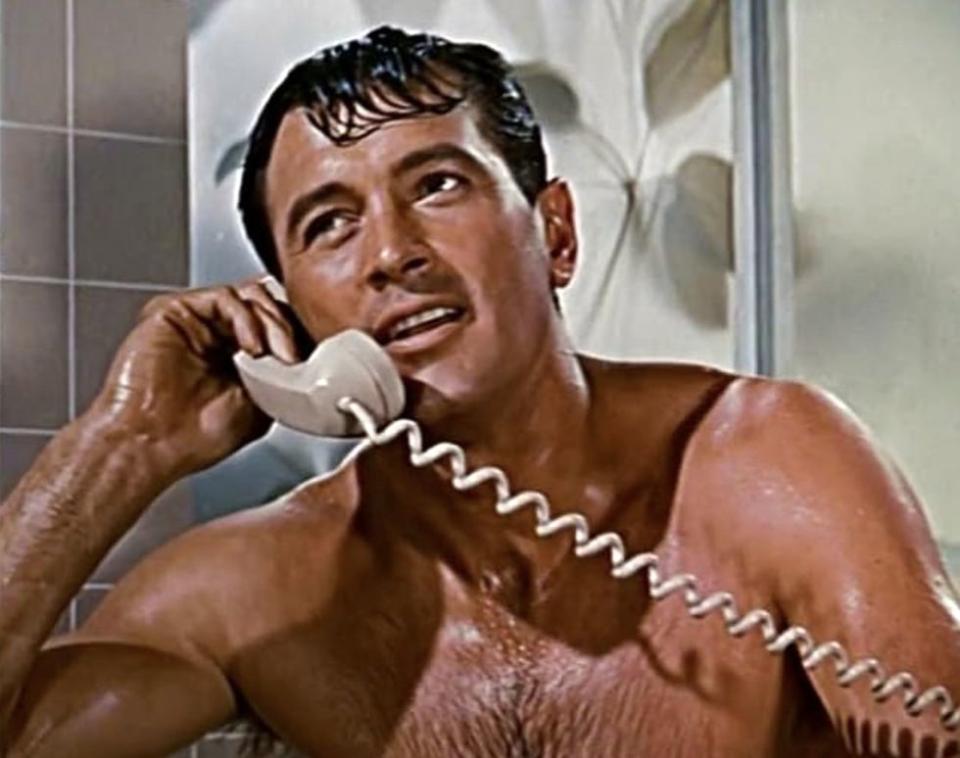
Universal Pictures
Pillow Talk is the first and most famous of Hudson’s three comedies with Doris Day. She’s interior decorator Jan Morrow, he’s playboy composer Brad Allen, and they have a party line — yes, people used to have to share a phone line. She despises him, knowing him only from the phone, and when she meets him in person, he poses as a na?ve tourist from Texas, visiting New York City. He also pretends to be a bit, uh, effeminate, so she considers throwing aside her morals to “save” him. If you can tolerate the mid-century morality and gender stereotypes — men are always after casual sex, “nice” women hold out for marriage — it’s pretty clever and funny. Thelma Ritter is a highlight as Jan’s hard-drinking housekeeper.
Lover Come Back (1961)
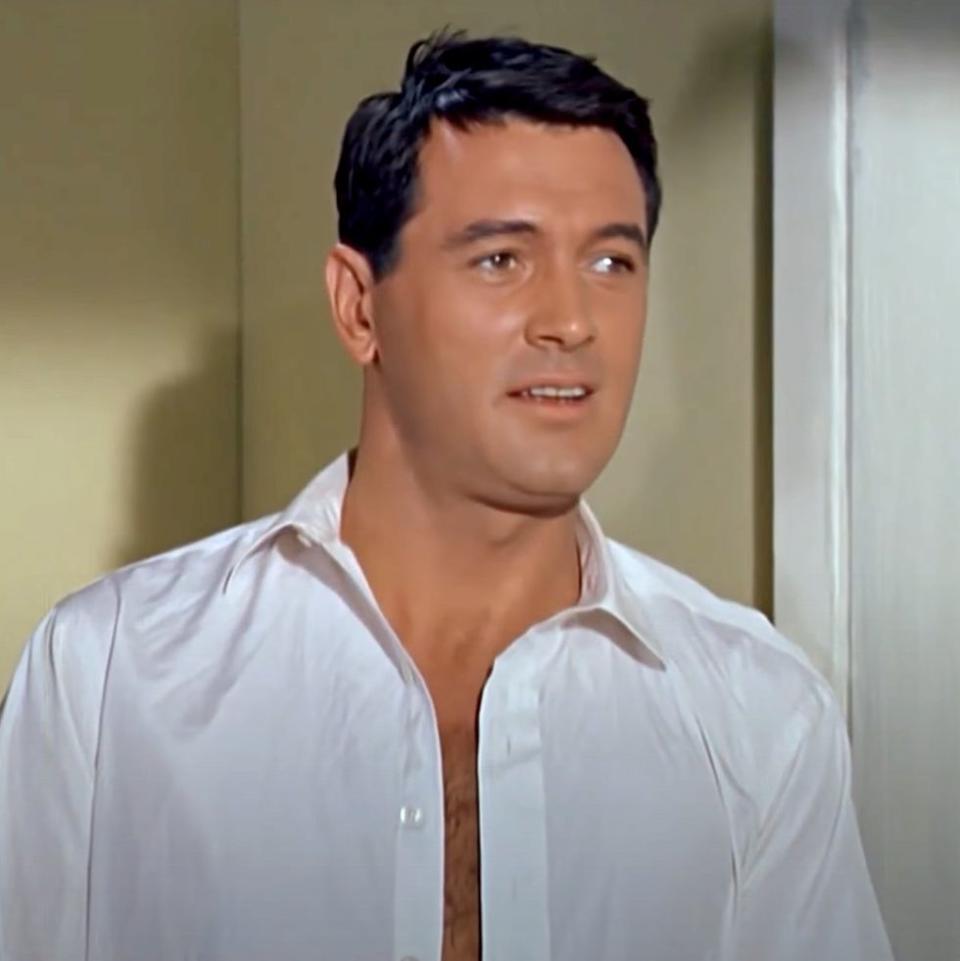
Universal Pictures
Hudson and Day reunited for Lover Come Back, a satire of the advertising business. They’re rival ad executives Jerry Webster and Carol Templeton, both trying to come up with a campaign for a product that doesn’t exist. Of course, they’re attracted to each other, and with the help of a little subterfuge things take their normal course — but still no sex outside marriage! Some critics of the time thought this one was even funnier than Pillow Talk.
Send Me No Flowers (1964)
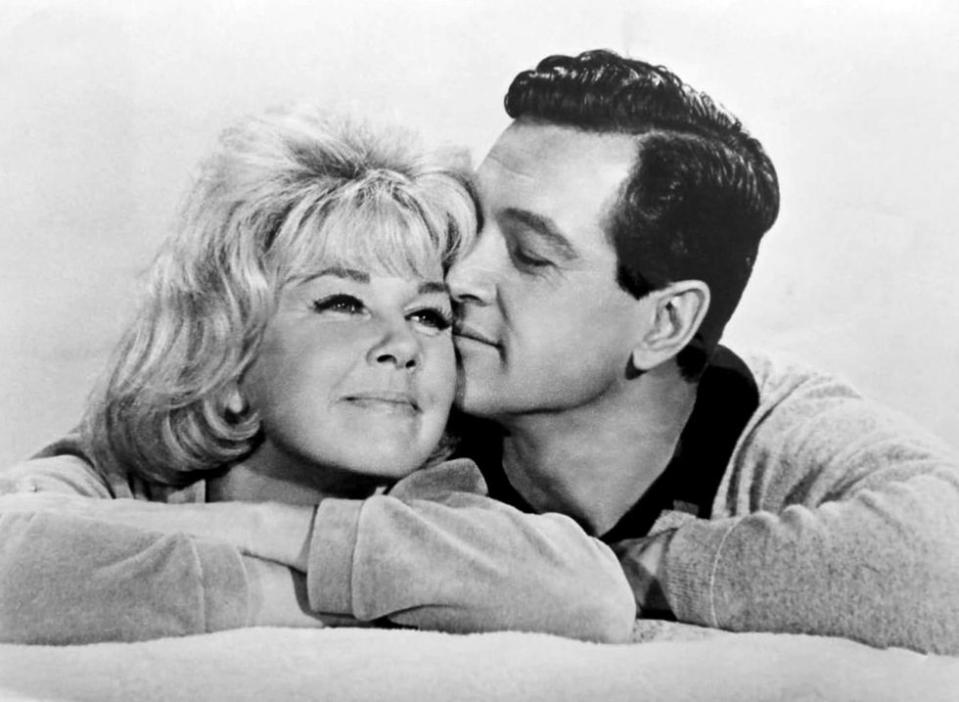
Universal Studios
The Hudson-Day pairing remains iconic despite the small number of films they made together. Send Me No Flowers was their third and last, and in this one they’re actually married. But the problem for New York suburbanites George and Judy Kimball is that George is a hypochondriac and is convinced he’s dying. He’s not, but he goes so far as to make funeral arrangements and try to find a second husband for Judy. Tony Randall, who appeared in both Pillow Talk and Lover Come Back, is back here as a comic second lead, and gay actor Paul Lynde is hilarious as a funeral director. By the way, Day was a loyal, lifelong friend to Hudson.
Seconds (1966)
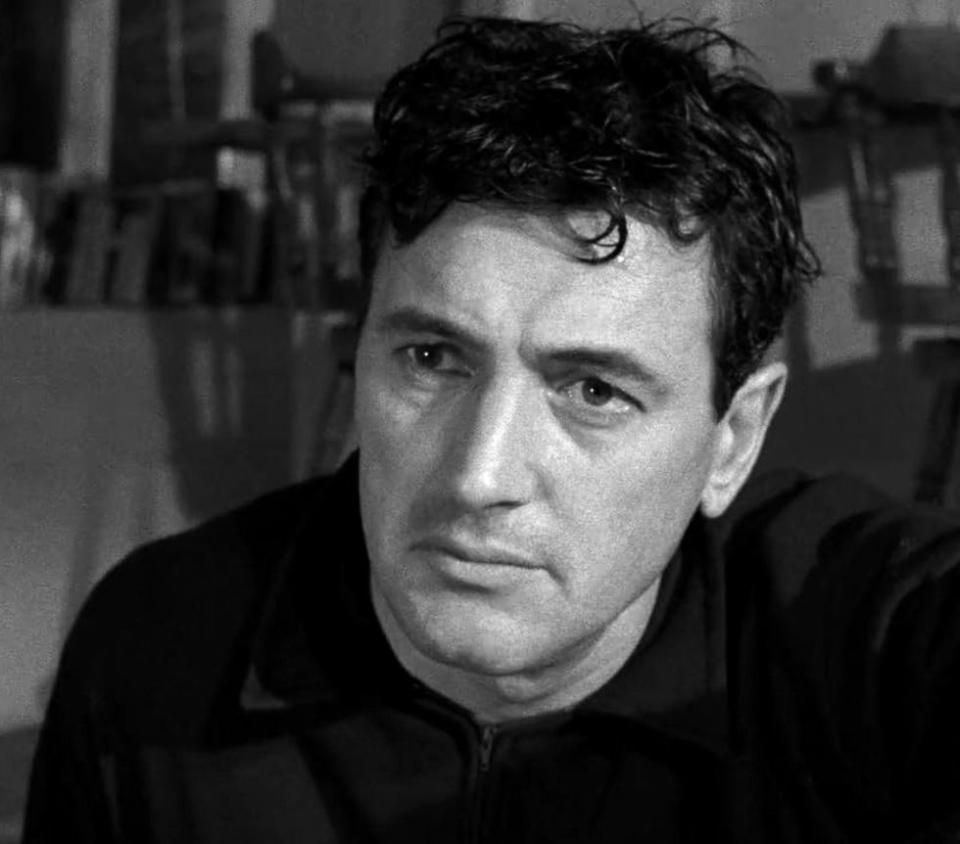
Paramount Pictures
Seconds was a departure for Hudson, and it’s one of his best-regarded films. Directed by John Frankenheimer (The Manchurian Candidate), it’s the story of people offered a new life through science. Arthur Hamilton (John Randolph) is a middle-aged banker who’s frustrated with his life, but he gets a chance to become young, swinging Malibu artist Tony Wilson, played by Hudson. Eventually Hamilton/Wilson comes to regret his choice, and it turns out there’s something sinister afoot. Salome Jens, a fine actress of stage and screen who deserves to be better known, plays Hudson’s love interest, Nora Marcus.
The Mirror Crack'd (1980)
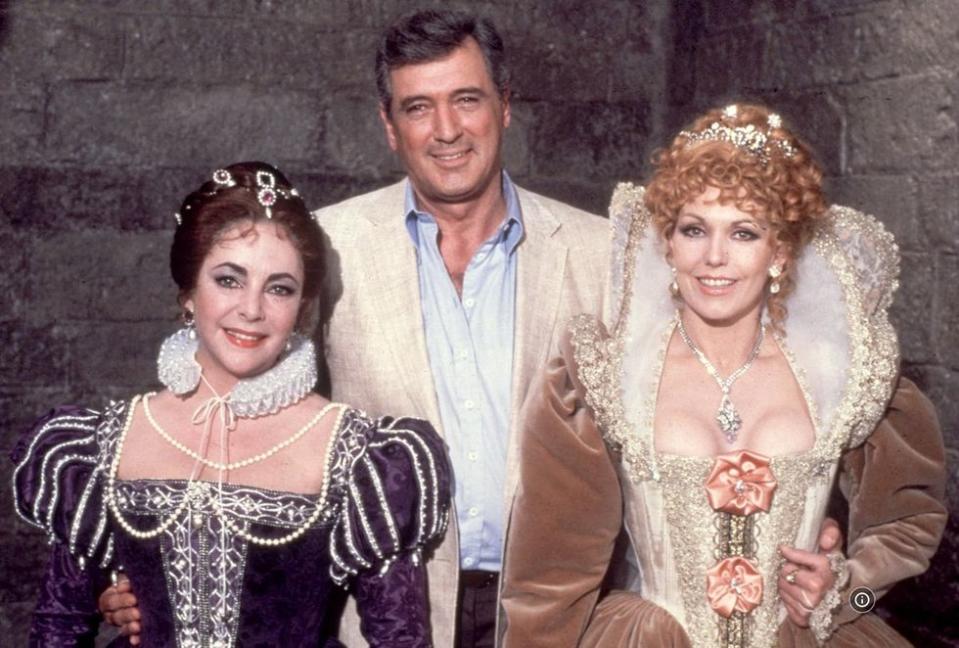
EMI FIlms/Columbia-Warner Distributors
The Mirror Crack’d is worth seeing for the plethora of classic movie stars in the cast. Based on an Agatha Christie novel, it finds an American studio in a small English village making a film about Elizabeth I and Lady Jane Grey — and the film’s leads are rival actresses played by Elizabeth Taylor and Kim Novak. Hudson is along as the husband of Taylor’s character. When a member of the cast is killed by poisoned, it appears Taylor’s Marina Rudd was the intended target — and Miss Jane Marple, played by classic star and future TV sleuth Angela Lansbury, comes in to investigate. Tony Curtis and Geraldine Chaplin turn up too, and it’s all campy fun.
